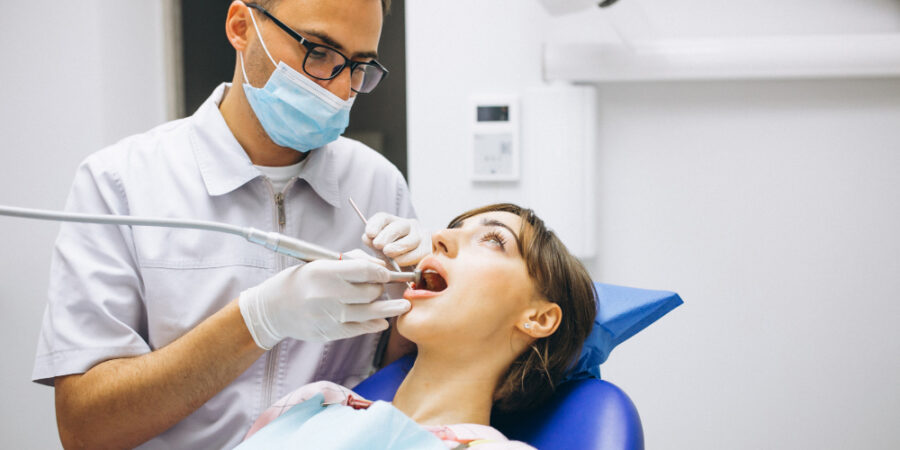Understanding Dental Care: Importance, Procedures, and Tips for Oral Health
The Importance of Dental Care
Dental care is essential for maintaining overall health and well-being. Regular dental check-ups and proper oral hygiene help prevent a range of dental issues, including cavities, gum disease, and bad breath. Good dental health contributes not only to a beautiful smile but also to overall health, as poor oral hygiene has been linked to systemic conditions such as heart disease and diabetes.
Common Dental Procedures
- Routine Check-Ups and Cleanings
- Regular dental visits typically include a comprehensive examination and professional cleaning to remove plaque and tartar, helping prevent cavities and gum disease.
- Fillings
- Dental fillings are used to repair cavities caused by tooth decay. Common materials include composite resin, amalgam, or porcelain.
- Root Canals
- This procedure is necessary when the pulp of a tooth becomes infected. The dentist removes the infected tissue, cleans the inside of the tooth, and seals it to prevent further infection.
- Crowns
- Dental crowns are caps placed over damaged teeth to restore their shape, size, and function. They can also protect weak teeth or cover dental implants.
- Bridges
- Dental bridges are used to replace one or more missing teeth. They consist of artificial teeth anchored to adjacent natural teeth.
- Extractions
- Tooth extractions may be necessary for severely decayed or damaged teeth, or for orthodontic reasons.
- Orthodontics
- Orthodontic treatments, such as braces or clear aligners, help straighten teeth and correct bite issues.
- Teeth Whitening
- Professional teeth whitening treatments can effectively lighten discolored teeth, improving overall appearance.
- Dental Implants
- Implants are artificial tooth roots placed in the jawbone to support replacement teeth, providing a long-term solution for missing teeth.
Tips for Maintaining Oral Health
- Practice Good Oral Hygiene
- Brush your teeth at least twice a day with fluoride toothpaste and floss daily to remove plaque and food particles between teeth.
- Regular Dental Visits
- Schedule regular check-ups and cleanings every six months or as recommended by your dentist. Early detection of issues can save time and money.
- Healthy Diet
- Eat a balanced diet rich in fruits, vegetables, whole grains, and lean proteins. Limit sugary snacks and drinks that can contribute to tooth decay.
- Stay Hydrated
- Drink plenty of water, especially fluoridated water, to help wash away food particles and bacteria in your mouth.
- Avoid Tobacco Products
- Tobacco use can lead to gum disease, tooth decay, and oral cancer. Quitting can significantly improve your oral health.
- Limit Alcohol Consumption
- Excessive alcohol can lead to dry mouth and increase the risk of oral health issues. Moderation is key.
- Wear a Mouthguard
- If you play contact sports or grind your teeth at night, consider wearing a mouthguard to protect your teeth from injury.
What to Expect During a Dental Visit
- Medical History Review
- Your dentist will review your medical history, including any medications you are taking and any dental concerns you may have.
- Examination
- The dentist will perform a thorough examination of your teeth, gums, and mouth, checking for signs of decay, gum disease, and other issues.
- X-Rays
- If necessary, your dentist may take X-rays to get a clearer picture of your dental health and detect issues not visible during a regular examination.
- Professional Cleaning
- A dental hygienist will clean your teeth, removing plaque and tartar buildup, polishing your teeth, and providing fluoride treatment if needed.
- Treatment Recommendations
- Based on the examination, your dentist will discuss any findings and recommend treatment options if necessary.
- Follow-Up Appointments
- If any treatments are needed, your dentist will schedule follow-up appointments to ensure your dental health is maintained.
Conclusion
Dental care is a crucial aspect of maintaining your overall health and well-being. By understanding the importance of dental health, familiarizing yourself with common procedures, and following best practices for oral hygiene, you can ensure a healthy smile for years to come. Regular visits to the dentist, combined with good home care, will help you prevent dental issues and enjoy optimal oral health.

Leave a Reply